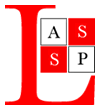Publié le 23 janvier 2025
–
Mis à jour le 3 mars 2025
Date(s)
le 23 janvier 2025
Alexandre HERMET, in Andrea Gattini and Marco Dimetto (eds.), Time and International Adjudication - The Temporal Factor in Proceedings before International Courts and Tribunals, Brill, 2025, p. 391-411
Alexandre Hermet, "Chapter 20 Time, Custom and International Adjudication, in : Andrea Gattini and Marco Dimetto (eds.), Time and International Adjudication - The Temporal Factor in Proceedings before International Courts and Tribunals, Brill, 2025, p. 391-411
https://brill.com/edcollchap/book/9789004716377/BP000027.xml
Résumé :
The relationship between international customary law and time is diverse and often a bit mysterious. This chapter aims to highlight that the role of time differs somewhat from what is commonly described. The litigation context provides an excellent setting for such an analysis. The chapter argues that the inherent relevance of time for identifying custom, as well as the specific moment when a customary rule emerges, are not crucial. Understanding the relationship between time and customary international law should not be centred on how long it takes for custom to form or when it is formed, but rather on when custom is identified. What truly matters is the authority that performs this identification. In this regard, time serves as a mere argumentative factor deployed by the entity asserting the customary rule. Such reflection leads to conclusions about the knowledge of custom, particularly its identification, and the role of time in this process.
https://brill.com/edcollchap/
Résumé :
The relationship between international customary law and time is diverse and often a bit mysterious. This chapter aims to highlight that the role of time differs somewhat from what is commonly described. The litigation context provides an excellent setting for such an analysis. The chapter argues that the inherent relevance of time for identifying custom, as well as the specific moment when a customary rule emerges, are not crucial. Understanding the relationship between time and customary international law should not be centred on how long it takes for custom to form or when it is formed, but rather on when custom is identified. What truly matters is the authority that performs this identification. In this regard, time serves as a mere argumentative factor deployed by the entity asserting the customary rule. Such reflection leads to conclusions about the knowledge of custom, particularly its identification, and the role of time in this process.
